
Finance
How to Finance your Bathroom Remodel in Chicago
04.15.2025

In This Article
Choosing a shower screen probably isn’t the sexiest decision you'll make in your home reno—but trust me, it’s the unsung hero of your bathroom makeover. Think of it this way: your bathroom is your morning sanctuary, your private concert hall, and sometimes, your makeshift therapist’s office. So why settle for something that's just "fine"?
Bring Your Dream Bathroom to Life
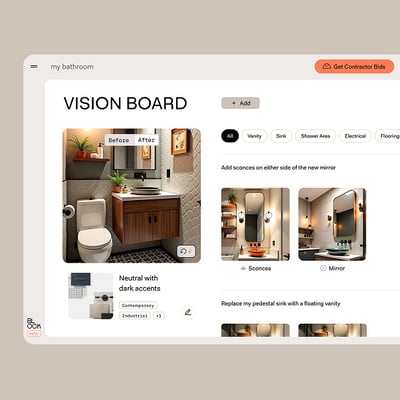
Picking the right shower screen can seriously upgrade your daily routine. A sleek glass enclosure can instantly make a cramped space feel brighter and more open, while frosted or tinted glass brings spa-like vibes (bonus points if you pretend you're at a luxury hotel, even if it's just a Monday morning). On the flip side, choosing poorly could leave you squeegeeing water puddles every morning and cursing your design choices.
But it's not just aesthetics—it's practicality, too. The right screen helps keep your bathroom floor dry, reducing the risk of slips and saving you from an extra chore. And let's be honest, no one wants to deal with moldy corners or soap scum build-up every weekend. Good screens mean easier maintenance, which equals more time for brunch, Netflix binges, or whatever else you'd rather do.
So, before you dive into Pinterest or get lost in Home Depot aisles, think about how you actually use your bathroom every day. Invest in a screen that's both beautiful and functional, and your future self (singing loudly in the shower without a care) will thank you. After all, a great day often starts with a great shower experience.
Do you know that fancy glass barrier in your bathroom is designed to keep shower water where it belongs—in the shower? Yep, that’s a shower screen. Think of it as the bouncer of your bathroom party, politely but firmly telling water, “You shall not pass!”
Shower screens come in various styles, from sleek glass panels that make your bathroom feel like a spa to sliding or hinged doors that prevent floods every morning. Basically, they're the grown-up cousin of your grandma’s clingy shower curtain—but with fewer moldy surprises.
Choosing the right shower screen is key because, let's face it, slipping on wet floors isn't how you want to start your day. Plus, no one likes scrubbing soap scum on weekends when brunch is calling your name.
Ultimately, a shower screen is your bathroom's unsung hero—keeping your floors dry, space chic, and dignity intact.
Know the Cost Before You Start

Installing a shower screen might not sound life-changing, but trust me—it’s the little upgrade your bathroom didn’t know it needed. First things first: shower screens keep water exactly where it's supposed to be—in your shower, not puddled on your bathroom floor. If you've ever done that awkward shuffle across slippery tiles or spent your weekend scrubbing mold from damp corners, you know exactly why this matters. No more bathroom mop-ups or towel-shuffling dances before your morning coffee kicks in.
But beyond the practical perks, a shower screen dramatically improves your bathroom’s aesthetic. Picture swapping out that moldy, clingy shower curtain (you know the one) for a sleek, glass panel. Suddenly, your bathroom goes from feeling like a damp locker room to a spa retreat. Friends visiting your home might actually think you have your life together—at least, judging by your bathroom décor.
And let's talk about privacy. A frosted or textured screen means you can keep your private shower performances (you know, those Grammy-worthy concerts) discreetly concealed. After all, showering is as much about belting out 80s hits as it is about hygiene, and some performances deserve privacy.
Ultimately, adding a shower screen is an easy way to boost both function and form. It keeps your floors dry, adds privacy, and makes your bathroom look effortlessly polished. So, if you're ready to ditch the towel mop-ups and bathroom embarrassment, it might be time to give shower screens the appreciation—and investment—they truly deserve.
When you start shopping for shower screens, you quickly realize there’s more out there than you ever dreamed possible. Seriously, who knew there were so many ways to keep water inside the shower—and off your floor? To save your sanity, here’s a handy breakdown of the main styles, their pros and cons, and which bathrooms they’ll fit best.
Framed screens are the trusty classics of bathroom renovations—fully enclosed with metal or aluminum frames. Think reliable sedan: affordable, sturdy, and always gets the job done. They’re durable and easy on the wallet, but the trade-off is a slightly bulkier look, as well as those pesky corners that seem designed specifically for mold build-up. Ideal if your bathroom refresh needs to stay traditional and wallet-friendly.
Semi-framed screens sit right in the sweet spot between classic and contemporary. They're partially framed, offering a sleek upgrade without straying into flashy territory. Imagine swapping your reliable sedan for something sportier—still practical but noticeably cooler. You'll enjoy a nice blend of style and sturdiness, though be warned: cleaning will require a bit more effort than with a fully frameless option. Perfect for bathrooms looking to strike a modern balance.
If your bathroom dreams involve the phrase "spa-like retreat," frameless shower screens are your new best friend. Made of thick, tempered glass without any metal framing, they instantly elevate your bathroom's style, creating an open, airy, and luxurious feel. Easy to clean and undeniably chic, these screens scream sophistication—but, as with most luxury items, expect a higher price tag and professional installation. They're the fancy sports car of the shower world: sleek, impressive, and worth every penny.
Sliding shower screens are like the clever storage hacks of the shower world—ideal when you have limited space but still want to keep things classy. Doors effortlessly glide along tracks instead of swinging open, eliminating that awkward dance between the door, sink, and toilet. However, tracks do have an annoying habit of accumulating soap scum and grime, so you'll need to clean them frequently to avoid unpleasant surprises. Great for bathrooms short on space but high on style ambitions.
Pivot or hinged screens are the drama queens of the bathroom, gracefully swinging outward or inward on hinges. They’re effortlessly elegant, making your daily shower feel like stepping into a fancy boutique. But elegance requires space, and these doors demand room to swing open without smacking into sinks, toilets, or unlucky family members. If you have the luxury of a spacious bathroom, hinged screens are a perfect pick.
Bi-fold shower screens are designed for bathrooms that feel more like Tetris puzzles than functional rooms. With doors that neatly fold inward, they make the most of tight or awkward spaces. It's the bathroom equivalent of a Swiss Army knife: compact, clever, and highly functional. But beware—more moving parts mean more maintenance. Still, it’s a small price to pay to avoid those early-morning gymnastics routines.
Perfect Every Detail of Your Bathroom
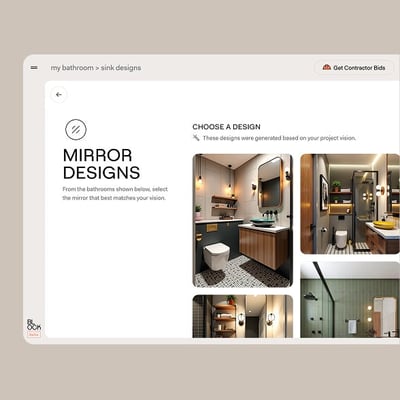
Choosing materials and finishes for your shower screen might sound about as thrilling as watching paint dry—but trust me, it matters. Not only will your choice impact how your bathroom looks, but it can also determine how many weekends you'll spend scrubbing away soap scum. Let’s get into it.
Clear glass is the classic, minimalist choice—perfect for showing off that fancy tile job (or your questionable shampoo choices). Frosted glass adds privacy, so your shower karaoke stays your little secret. Tinted glass gives your bathroom a trendy, moody atmosphere, while textured glass brings subtle style and extra privacy. Then there’s low-iron glass: ultra-clear and luxe-looking, making your bathroom feel more like a spa retreat.
Aluminum frames are affordable, durable, and practical—think of them as the sensible shoes of shower screens. Stainless steel kicks things up a notch with extra shine and rust resistance, perfect for those steamy showers. Black matte frames instantly upgrade your bathroom’s style, delivering modern vibes without even trying. And brushed gold? It’s like jewelry for your shower—just fancy enough to impress but not over-the-top (unless that's your thing).
Let’s face it: scrubbing glass isn’t anyone’s idea of weekend fun. Luckily, shower screens now come with magical-sounding coatings like anti-limescale, keeping those pesky water spots and mineral deposits away. Even better, there’s self-cleaning glass—yes, glass that practically cleans itself. It won’t completely eliminate cleaning, but it definitely reduces your cleaning rage, letting you spend your Saturdays doing literally anything else.
Bottom line? Choosing the right materials and finishes makes your bathroom look great—and keeps your sanity intact.
Selecting the right shower screen for your bathroom isn't as simple as grabbing the first shiny thing you see at Home Depot—though we've all been tempted. Several factors matter: bathroom size, budget, design style, and your personal tolerance for weekend scrubbing sessions.
First, consider bathroom size. If you’re dealing with a tight space, sliding or bi-fold shower screens will save you from performing daily bathroom gymnastics. Larger bathrooms can afford the luxury of pivot or hinged screens, adding an elegant feel without causing door-to-toilet collisions.
Your budget is another key player. Frameless glass screens offer a high-end spa feel, but their price tags might leave you reconsidering your priorities. On the flip side, framed or semi-framed options keep costs manageable while still looking sharp.
Next, think design. Is your renovation theme modern and minimalist or traditional and cozy? Frameless and semi-framed screens work beautifully in contemporary bathrooms, while fully framed screens suit classic styles, like the reliable sedan of shower screens—practical but not flashy.
Lastly, think about maintenance. Frameless screens and anti-limescale coatings mean fewer weekends spent battling mold and soap scum. If cleaning ranks low on your list of favorite hobbies, invest in low-maintenance options.
Ultimately, matching your shower screen with your renovation theme involves balancing these factors thoughtfully. So, weigh your bathroom realities carefully, and choose the screen that keeps your space stylish, your floors dry, and your Saturday mornings blissfully chore-free.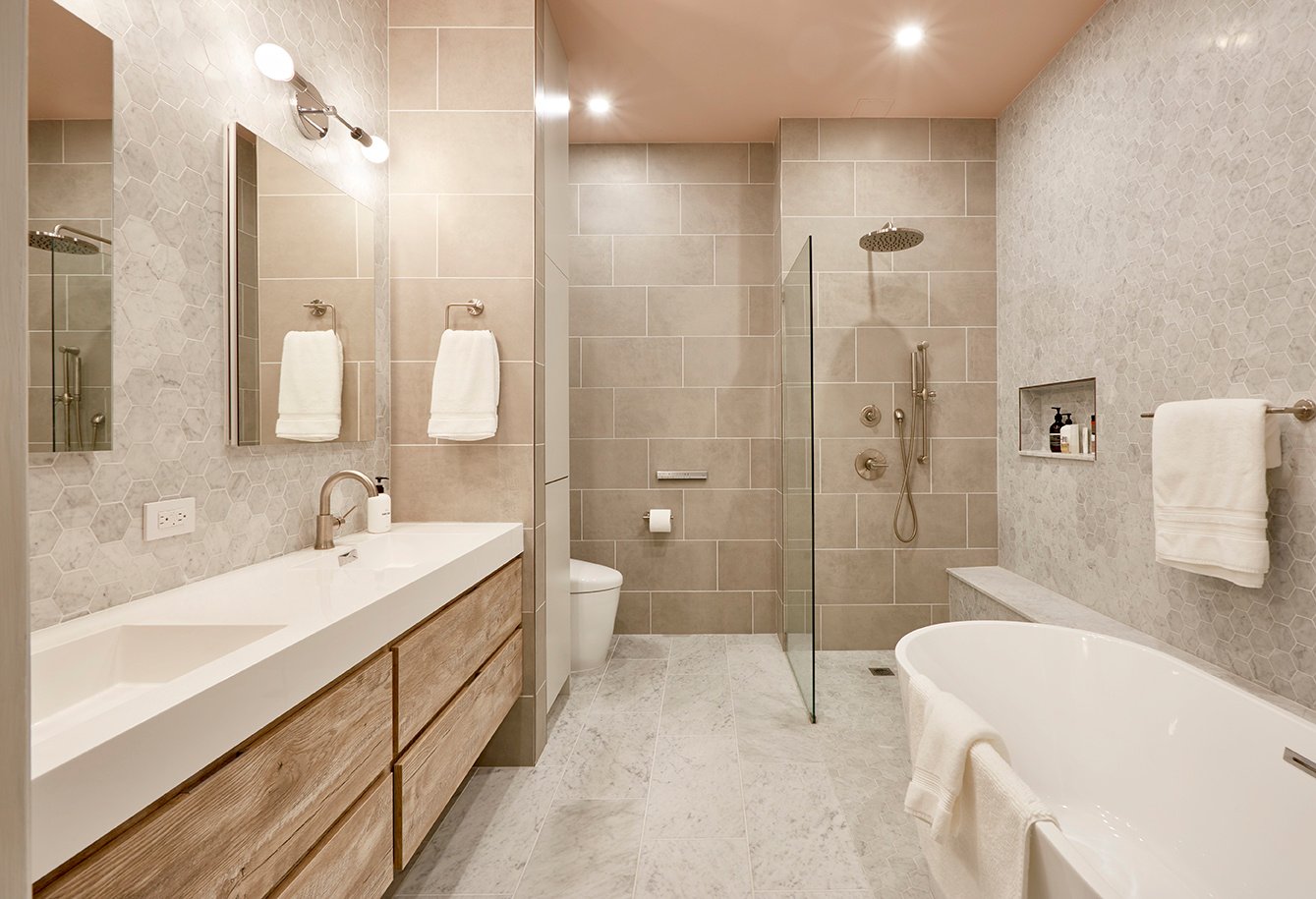
Let’s face it: picking the perfect shower screen is one thing, but getting it installed and keeping it sparkling is an entirely different battle. Here’s the lowdown on installation options, cleaning hacks, and common pitfalls to avoid DIY disasters or moldy surprises down the road.
First, the big question: Should you DIY your shower screen installation or call in the pros? If your idea of a fun weekend includes power tools and YouTube tutorials, DIY might be tempting. Framed or semi-framed screens can usually be tackled yourself, as long as you measure twice (or three times!) and take things slow. However, you'll want professional backup if you’ve splurged on a luxurious frameless screen. Those sleek glass panels are heavy, fragile, and unforgiving—one slip-up and your bathroom makeover could become a bathroom nightmare. Save yourself stress (and potential injury), and leave complex installations to the experts.
Once your beautiful screen is up, the next challenge is keeping it sparkling. Invest in a good-quality squeegee and commit to a 30-second wipe-down after each shower. Yes, it’s slightly annoying, but it’ll save you hours scrubbing soap scum later. Use gentle cleaners like white vinegar mixed with water for regular maintenance. Got tough water stains? Baking soda and lemon juice work wonders. Try diluted bleach or mold-specific sprays for sneaky mold spots that appear in corners or frames. Pro tip: ventilating your bathroom regularly reduces humidity and mold growth, saving you even more cleaning headaches.
There are plenty of ways a simple shower screen installation can go hilariously wrong. The biggest rookie mistake? Incorrect measurements. Always measure multiple times—walls in older houses can be sneakily uneven. Another common slip-up is forgetting about clearance space.
Pivot or hinged screens need room to swing freely, so don't underestimate how far that door will open (unless you enjoy accidentally knocking over bathroom accessories). Also, ignoring waterproof seals is a recipe for bathroom floods. Take extra care to seal edges properly with silicone to keep water inside your shower where it belongs.
By carefully considering installation options, committing to a simple cleaning routine, and avoiding these common mistakes, your shower screen will stay stylish, sturdy, and mold-free for years. After all, your bathroom should be your relaxing retreat—not a never-ending renovation saga.
Upgrading your bathroom with a new shower screen can instantly enhance both style and functionality. But with so many options available, from basic framed models to high-end custom enclosures, the price can vary significantly. Here’s a breakdown of what you can expect to pay, including installation and customization costs.
Shower screens come in various styles and price points, depending on the material, design, and quality. A basic framed shower screen typically costs between $200 and $600, while semi-frameless options range from $400 to $1,200. Expect to pay anywhere from $700 to $2,500 or more for a sleek, fully frameless look.
Sliding and bi-fold shower screens tend to be more affordable, starting at around $300, while hinged and pivot doors, which require more precise installation, can cost $800 to $2,000. If you’re considering a high-end, custom glass shower enclosure, prices can climb above $3,000, especially for oversized or uniquely shaped designs.
Beyond the base price of the shower screen, installation costs should also be factored in. A professional installation typically costs between $200 and $800, depending on the complexity of the job. If your bathroom requires modifications, such as reinforcing walls to support a heavy frameless glass panel, this can add another $200 to $500 to the final bill.
Customizations, including tinted or frosted glass, patterned etching, or specialty hardware finishes, can also drive up the cost. Custom glass thickness or high-end materials may add $300 to $1,000, while premium hardware, such as matte black or brass fixtures, may increase costs by $100 to $500.
For those opting for DIY installation, some prefabricated shower screens come with instructions for easy setup. However, professional installation is often recommended for frameless and custom options to ensure a secure fit and avoid costly mistakes.
By considering the type of shower screen, installation fees, and potential upgrades, you can budget accordingly and find a stylish, functional option that fits your needs.
Learn More: How to Choose a Bathroom Contractor
Choosing the right shower screen depends on your budget, style preferences, and installation requirements. Framed screens offer affordability, while semi-frameless and frameless designs provide a sleek, modern look at a higher cost. Installation fees and customizations, such as specialty glass or premium hardware, can add to the total price.
When selecting a shower screen, consider factors like space, durability, and ease of maintenance. A framed or sliding screen may be ideal if you're looking for a budget-friendly option. A frameless glass enclosure could be worth the investment for a high-end, minimalist aesthetic.
No matter your choice, professional installation ensures a secure, long-lasting fit.
Ready to upgrade your bathroom? Find a contractor today to install your new shower screen and enjoy a stylish, functional space tailored to your needs.
What is the best type of shower screen for a small bathroom?
How do I clean and maintain a frameless shower screen?
Are shower screens customizable to fit unique bathroom layouts?
What is the difference between tempered glass and standard glass for shower screens?
How much does it cost to install a custom shower screen?

Renovate confidently with Block
Easily compare quotes from top quality contractors, and get peace of mind with warranty & price protections.
Thousands of homeowners have renovated with Block

4.5 Stars (100+)

4.7 Stars (100+)

4.5 Stars (75+)

Finance
How to Finance your Bathroom Remodel in Chicago
04.15.2025
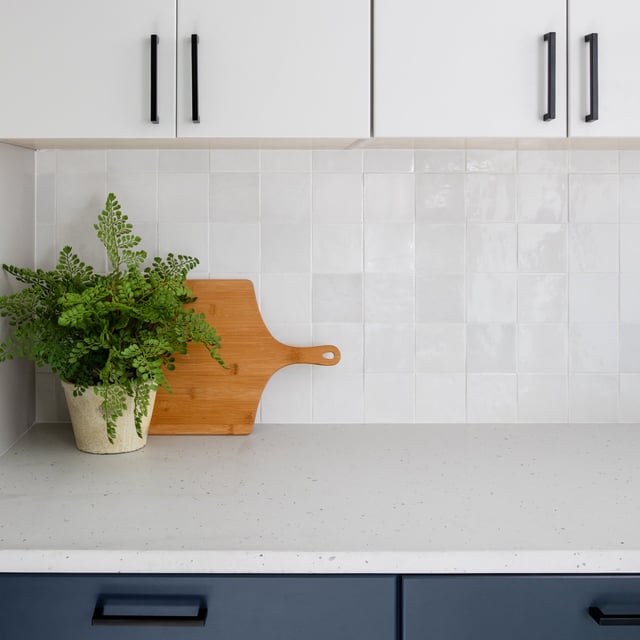
Design
The Ultimate Guide to Kitchen Tiles with Tile Options
04.01.2025

Design
What is a Frameless Glass Shower Screen?
03.25.2025
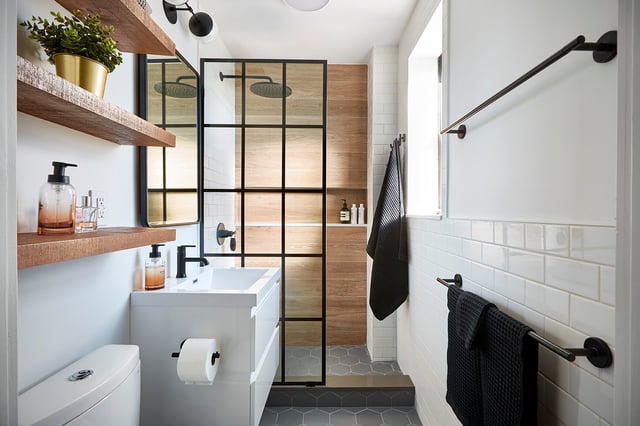
Finance
Ultimate Guide to Chicago Bathroom Financing
03.24.2025
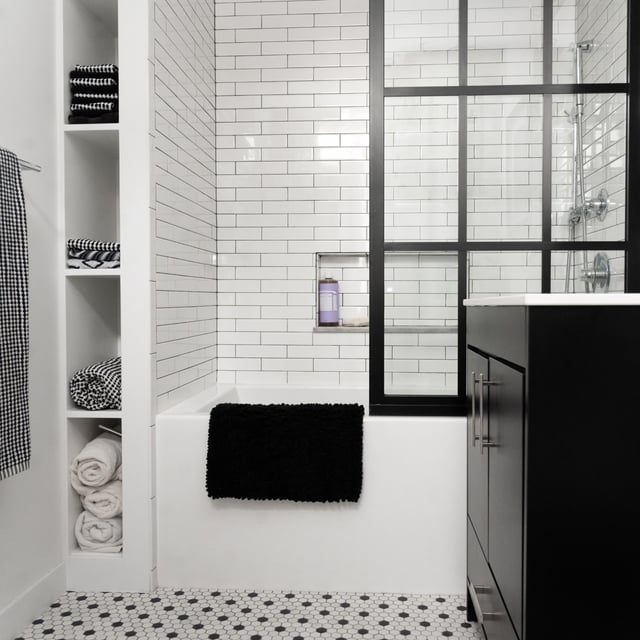
Remodeling
How to Finance a Bathroom Remodel in New Jersey
03.19.2025
Renovate confidently